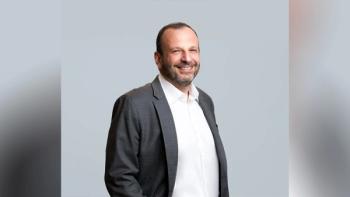
- Pharmaceutical Executive-08-01-2019
- Volume 39
- Issue 8
The Call to Cure: Geoff MacKay, AVROBIO
Pharm Exec speaks with Geoff MacKay, co-founder and CEO of AVROBIO, about the company’s mission to advance potentially curative lentiviral-based gene therapies, his career building businesses and innovation in regenerative medicine, and his most important quest to date-moving gene therapy into the mainstream.
A pioneer in building businesses and innovation in gene-based medicine, including the first FDA-approved allogeneic cell therapy, Geoff MacKay, CEO of lentiviral-focused developer AVROBIO, discusses his most important quest to date-bringing gene therapy into the mainstream
Founded in 2015, AVROBIO (Cambridge, MA) is a clinical stage company developing potentially curative gene therapies with the goal to free patients from a lifetime of disease.
AVROBIO co-founder and CEO, Geoff MacKay, spent 11 years at Novartis in senior leadership positions within the Global Transplantation and Immunology franchise before becoming CEO of Organogenesis in December 2003. Organogenesis treated one million patients with living cell therapies and received the first
FDA Center for Biologics Evaluation and Research (CBER) allogeneic cell therapy approval. MacKay went on to be the founding CEO of eGenesis, applying CRISPR Cas-9 gene editing to xenotransplantation. He also served as chairman of the board of MassBio, chairman of the Alliance of Regenerative Medicine, and Advisory Council to the Health Policy Commission for Massachusetts.
Pharm Exec talked with MacKay about the evolution of his career and his vision to bring gene therapy into the mainstream.
PE: Could you share a little bit of background about your career and what led you to co-found AVROBIO?
GEOFF MACKAY: I spent more than a decade at Novartis in the 1990s in transplantation and immunology. At the time, Novartis was very enamored with the new emerging cell and gene space and had invested early, and I worked in that space. Eventually, Novartis realized that it was maybe a bit premature for them to commit. However, this experience gave me a glimpse of where the science was heading and I decided to leave big pharma and lead one of the early cell therapy companies, Organogenesis. Over a 10-plus year span as CEO of Organogenesis, I helped to build it into the leading cell therapy company in the world and got the first CBER approval for an allogeneic cell therapy. There are about 1.4 million patients in the world who have received cell therapy of any kind, and one million of them received an Organogenesis cell therapy. It is still, in 2019, the only business that mass produces living cell therapies at such an industrial scale.
Eventually, Organogenesis grew into a marketing, sales, and manufacturing-focused company of 600 people and it was time for me to step back into more early-stage innovation. Just as cell therapy was the place to be 10 years prior, the gene therapy revolution was finally hitting; consequently, I was involved in starting up two gene-based companies. One, eGenesis, focuses on gene editing for xenotransplantation, is still a highly innovative Cambridge startup. But my main focus was AVROBIO, which I started in 2015 with two other founders.
PE: Was it difficult to make the transition from a big pharma to a biotech company after a decade?
MACKAY: In the Cambridge biotech ecosystem, many people go from pharma to small biotech. I think the critical success factor is to take all the immense learnings from pharma but simplify them and make them less bureaucratic. I can’t imagine a better school than spending a decade in Novartis. The challenge is, how do you simplify all of that “best practice” training into something that is faster-paced and more streamlined? I think if you have that as a mindset, you can really succeed in making the transition from big pharma to biotech.
PE: How have you seen the gene therapy field change and grow? What point are we at now?
MACKAY: Part of the catalyst for forming AVRO in 2015 was the immense excitement around the clinical validation that was hitting the field at that time. This includes CAR-T, which can be considered ex vivogene therapy targeting oncology indications. Going back five years, the validation for gene therapy for rare disease applications, from companies like GSK and Bluebird Bio, was really exciting and the future of gene therapy was coming into clear focus.
Now moving ahead to 2019, there is a critical mass of energy and early-stage trials that are really taking hold and advancing the field. Medical practice is about to be dramatically transformed based on the hundreds of new gene therapies that are currently in clinical trials. I don’t really know what the precise definition of a tipping point is, but it seems we’re well beyond it right now.
PE: Can you explain what a lentiviral approach to gene therapy is, and what its advantages are?
MACKAY: A key point is that it’s individual therapy. We collect the patient’s blood and select out their own CD34 hematopoietic stem cells. We then give those stem cells an upgrade by transducing them with our lentiviral vector, which is an inactivated and highly modified virus that delivers the normal, healthy gene into the cells. Next, we cryopreserve these modified cells, so they have a long shelf life to conveniently ship back to the clinic. Those modified cells are thawed and then reinfused back into the patient via a straightforward, one-time administration of the gene therapy. The mechanism is such that these modified cells migrate to the bone marrow, where they will engraft. The ultimate impact on disease comes not from those engrafted cells, but from their daughter cells. The progeny of these gene modified CD34 hematopoietic stem cells turn into the blood lineage, which both produce and distribute the active therapeutic protein throughout the body.
To me, the real value of lentiviral gene therapy is apparent when properly matched to a disease with a particular set of needs. If what is required is a full systemic distribution of an active protein for the life of a patient, that really is the sweet spot for lentiviral vectors. In fact, over 200 patients have been treated with lentiviral-based gene therapies across a growing list of monogenic rare diseases, with long-term follow-up going out as much as 10 years or more.
PE: Beyond the clear advantages of one-time versus chronic treatment, what are the benefits to patients?
MACKAY: In the diseases that we target, lysosomal storage disorders, the one-time gene therapy is potentially a tremendous advantage because today’s standard of care is biweekly infusions for the life of the patient. That means a major disruption of the patient’s life. Freeing up the patients from these biweekly infusions has a tremendous positive impact on quality of life.
One of the biggest potential advantages of gene therapy is that it addresses the main unmet need that today’s standard-of-care enzyme replacement therapy (ERT) slows down disease progression but does not halt it.
The major goal of our gene therapy approach is to halt disease progression. The scientific rationale for why we believe this is possible relates to the pharmacokinetics of enzyme delivery. ERT requires an infusion every two weeks and yet is gone from the blood within 12 hours. This implies that the majority of time in between infusions, the patient may have insufficient enzyme in distribution. The whole premise of gene therapy centers on delivering 24/7 protection of enzyme, as opposed to this stop-start method with today’s ERT. That’s what we believe we’re demonstrating. If we can with a one-time infusion essentially bathe the patient’s cells, tissues, and organs with the needed enzyme, we hope this will translate into a better clinical outcome.
PE: What have you learned from bringing your lead gene therapy into clinical trials, and what is your perspective on the early clinical results to date?
MACKAY: Our lead gene therapy candidate is for Fabry disease, a lysosomal storage disorder in which a genetic defect causes a patient not to produce normal levels of an important functional enzyme. Our clinical studies are still ongoing, so the results are not yet completed; to date, we’ve seen what we believe to be a consistent readout across our first eight patients showing improvement in multiple surrogate biomarkers and functional endpoints. We are fortunate that Fabry is a well-studied disease with established primary and secondary endpoints. Although much further study is required, we are more excited with every step forward in building a growing body of evidence of the therapeutic potential of our gene therapy for patients with Fabry disease.
PE: Obviously, you will continue to be dependent on clinical results, like all companies, but, if there are “bumps in the road” along the way, how do you deal with that from a leadership perspective?
MACKAY: Bumps in the road are par for the course in biotechnology. Science is complicated and rarely progresses in a linear fashion. We have focused on rapidly building our company and creating a pipeline of investigational gene therapy candidates. Pushing forward, we have a constant focus on talent acquisition as well as properly financing our company. Since we formed AVRO, we have secured a strong financial position, partially enabled by a successful IPO in 2018.
I couldn’t be more proud of the leadership team that we’ve built. Our leaders include the original founders of AVRO and executives that joined us in the start-up phase, who were instrumental in getting us to where we are. More recently, we strengthened our executive team, bringing in top-tier industry veterans who we really think are the best in the world at what they do.
PE: There’s an ongoing discussion around the pricing of these kinds of treatments. What is your feeling on how payers are evolving in terms of accepting one-time treatments and their relatively high prices?
MACKAY: One-time, single-dose gene therapies have the potential to save the healthcare system a fortune by offsetting enormous lifelong costs of care. How to implement a value-based payment system is an evolving and complicated discussion. All of us, in society, are going to have to make an assessment as to what we’re willing to do for one-time curative gene therapies. Regarding lysosomal storage disorders, the decision may be quite a bit easier because today’s standard of care is extremely expensive. The lifetime cost for a patient with Fabry disease, for example, is $14 million.
Gene therapy not only has the potential to free up the patients from ongoing infusions and hopefully provide a better clinical outcome, but can also save the healthcare system many millions of dollars for every patient dosed. The first wave of gene therapy companies is proposing various innovative risk-sharing models with payers. The diseases that AVRO are targeting have very concrete, easy-to-calculate health economic benefits with a payback within a few years, almost independent of how they are priced.
PE: How much is your attention focused on the manufacturing and commercialization challenges for gene therapies to achieve future success?
MACKAY: This is our top priority. From the very first day of starting AVRO, we wanted to be the company that solves many of the bottlenecks around large-scale commercialization of gene therapies.We have been keenly focused on answering the questions: “how do you scale up?”-“how do you industrialize?”-“how do you deliver convenient cost-effective gene therapies that the healthcare system can really adopt?”-“how do you reach patients around the world in need of your medicine?”
The platform we have created, called plato™, is designed for commercial-stage production of our gene therapies. We view plato as leading the field in transitioning to large-scale bioreactors, fully automated manufacturing, and advanced vectorology refinements. Since 2015, we’ve been focused on preparing plato for the clinic. This required a real mobilization of our team and I am happy to say that, in the first half of 2019, we received multiple regulatory clearances around the world that enable us to incorporate plato into both our Fabry and Gaucher clinical development programs.
PE: We hear about “industrializing” gene therapy manufacturing and “commercial scale” manufacturing. What does that entail exactly? What are the foundational issues that need to be addressed?
MACKAY: Peter Marks, director of the Center for Biologics Evaluation and Research (CBER), has made the point at many recent meetings that he is completely confident that gene therapy will succeed clinically. What keeps him up at night, and what he is very outspoken about, is the need to upgrade and to improve quality and consistency related to manufacturing. Of course, that’s very well aligned with the focus that we’ve had at AVROBIO since we began the company.
Vector scale-up, cell bioprocessing, and related analytical criteria are all challenging topics that require immense focus. Locking in major CMC elements early and developing internal capabilities to implement smaller process changes is key. In fact, companies that don’t prioritize this from day one may not succeed. It is worth noting that the CBER division of FDA has really risen to the occasion and provides tremendous leadership to the emerging companies in our field. What industry needs from regulators is clarity and consistency, and FDA has been a beacon of light as standards are being established.
PE: Do you envision reaching the required manufacturing level by the time you’re approaching commercialization?
MACKAY: Yes. Having dosed eight Fabry patients to date and with our other clinical programs advancing as planned, our thoughts and energy are now geared toward launch readiness. We are already establishing manufacturing solutions in North America, Europe, and Asia in order to meet global demand. The scale-up requirements are significant, and the automation and vector innovations deployed within our plato platform give us confidence in our belief that we will be able to treat thousands of patients at the point of commercialization.
PE: What is your long-term vision for bringing lentiviral gene therapies to a broad range of patients?
MACKAY: We’re highly focused on the first wave of gene therapy candidates in our pipeline because we believe, if the profile holds, they will be truly transformative to patients suffering from lysosomal storage disorders. There are about 30,000 patients across the four rare diseases in our pipeline, and today’s standard of care generates about $4 billion of annual revenue. Beyond this first wave, we believe that the optimization around our plato platform lends itself well to expanding into more indications. With the ex vivolenti approach, we anticipate that we may simply switch out one disease-specific transgene to address additional diseases. AVRO has not disclosed what is in our early-stage R&D pipeline, but we intend to continue to leverage plato to target a growing number of well-defined, monogenic disease targets. Our model is to rigorously identify indications where there’s high unmet medical need and which a lifelong, systemic distribution of an active protein is life-altering.
PE: You mentioned that, as the gene therapy field matured, it was time for a new challenge. Do you see that happening again with AVROBIO?
MACKAY: I spent 11 years in the Novartis organization, followed by 11 years in Organogenesis. I joke that I have one more 11-year stint in me. Now I want to focus on bringing gene therapy into the mainstream and I believe that AVROBIO is very well positioned to deliver on that.
Julian Upton is Pharm Exec’s European and Online Editor. He can be reached at
Articles in this issue
over 6 years ago
A Look Back & Forward on Innovationover 6 years ago
Routes to Exclusivity in Cell-Based Therapy Developmentover 6 years ago
Gene Therapy: Managing the Clinical Trial Minefieldsover 6 years ago
Four Takeaways from the Zolgensma Pricing Stormover 6 years ago
FDA Faces ‘Explosion’ in Growth of Gene Therapiesover 6 years ago
Mapping Out the Future of Cell and Gene Therapyover 6 years ago
High-Stakes Manufacturing: Mitigating the Risksover 6 years ago
Gene Therapy: How ‘Advanced’ is Europe?over 6 years ago
Luxturna: A Vision for Curative Therapy Accessover 6 years ago
The Shrinking Disconnect in Digital TherapeuticsNewsletter
Lead with insight with the Pharmaceutical Executive newsletter, featuring strategic analysis, leadership trends, and market intelligence for biopharma decision-makers.




